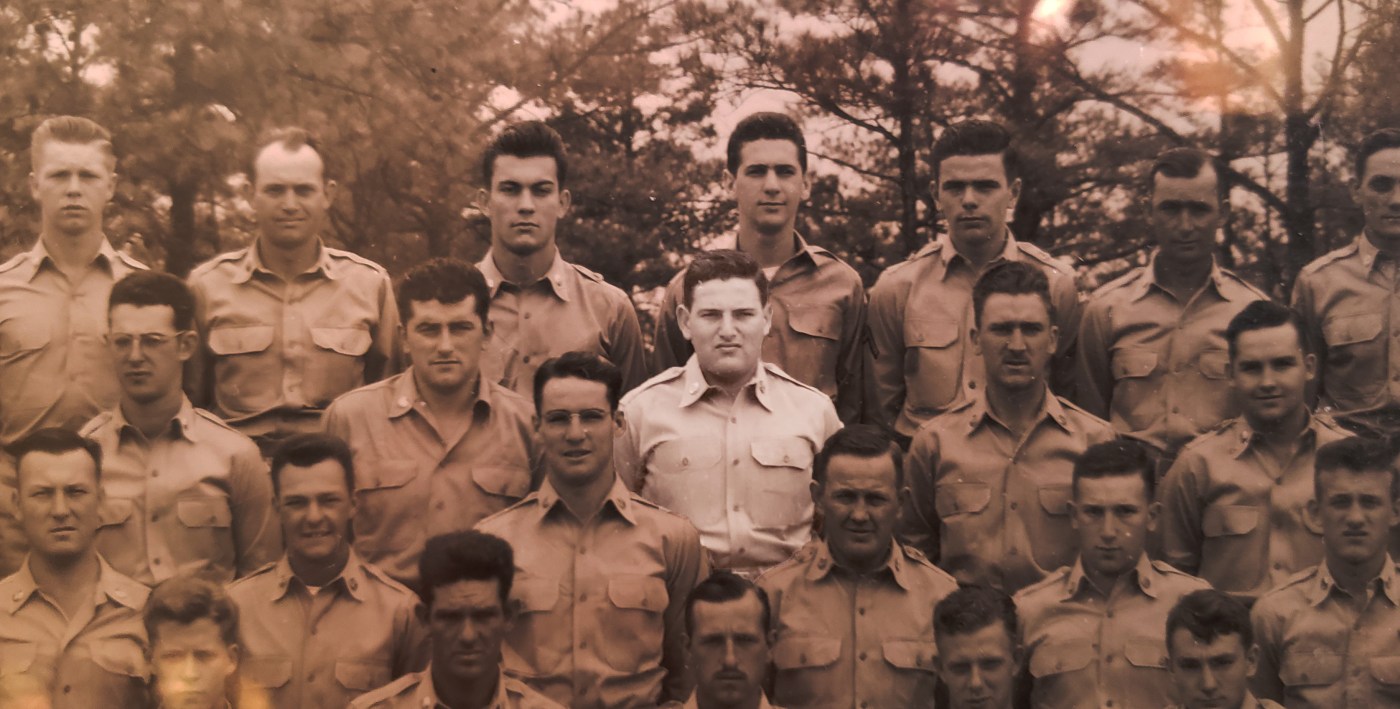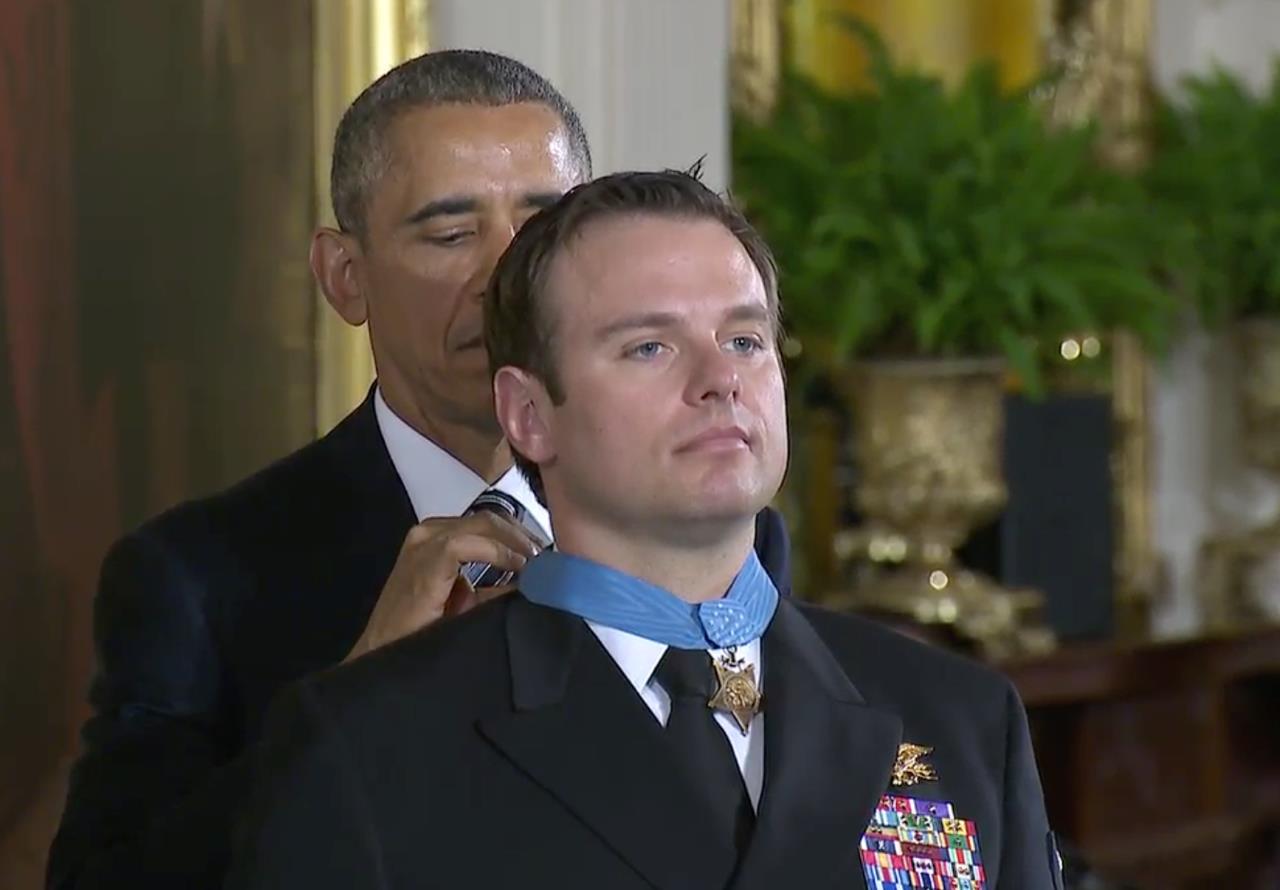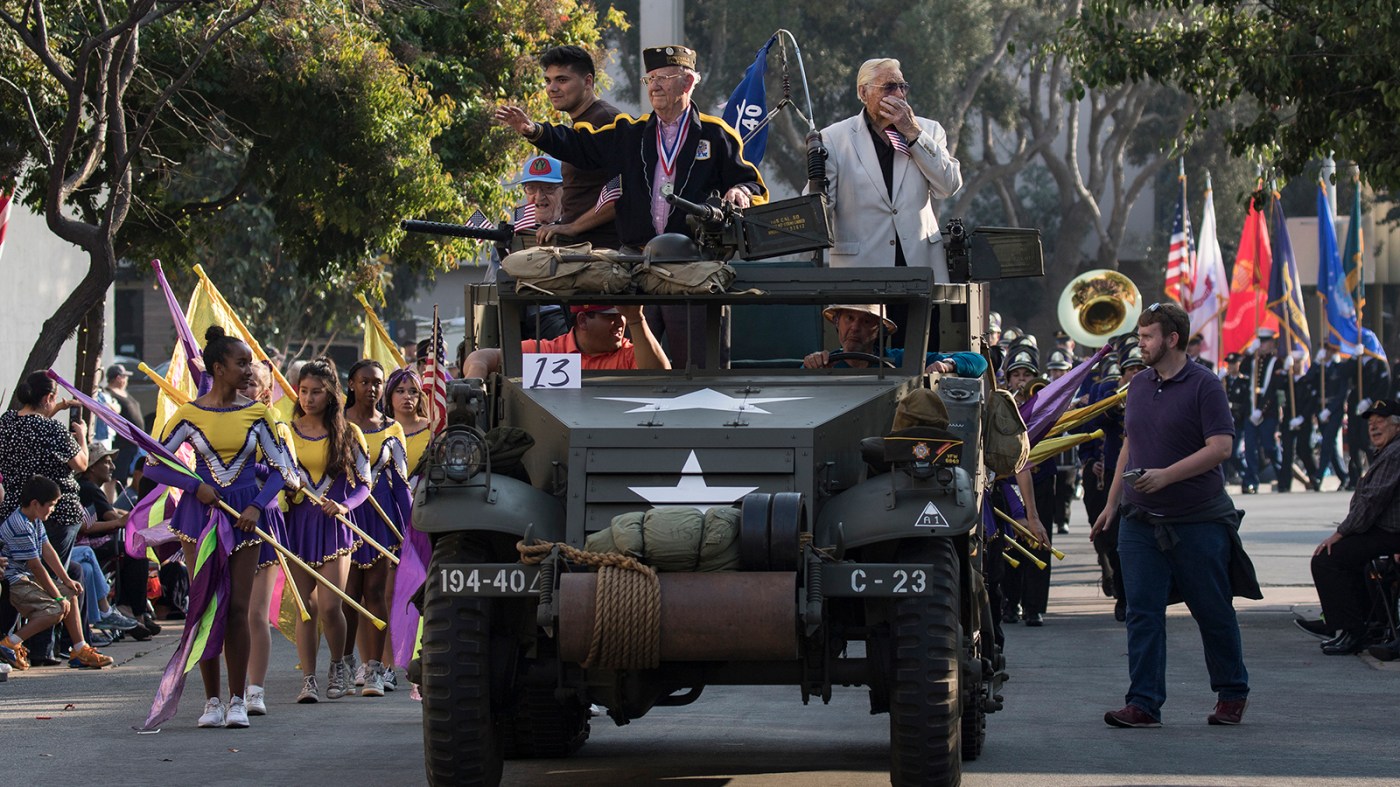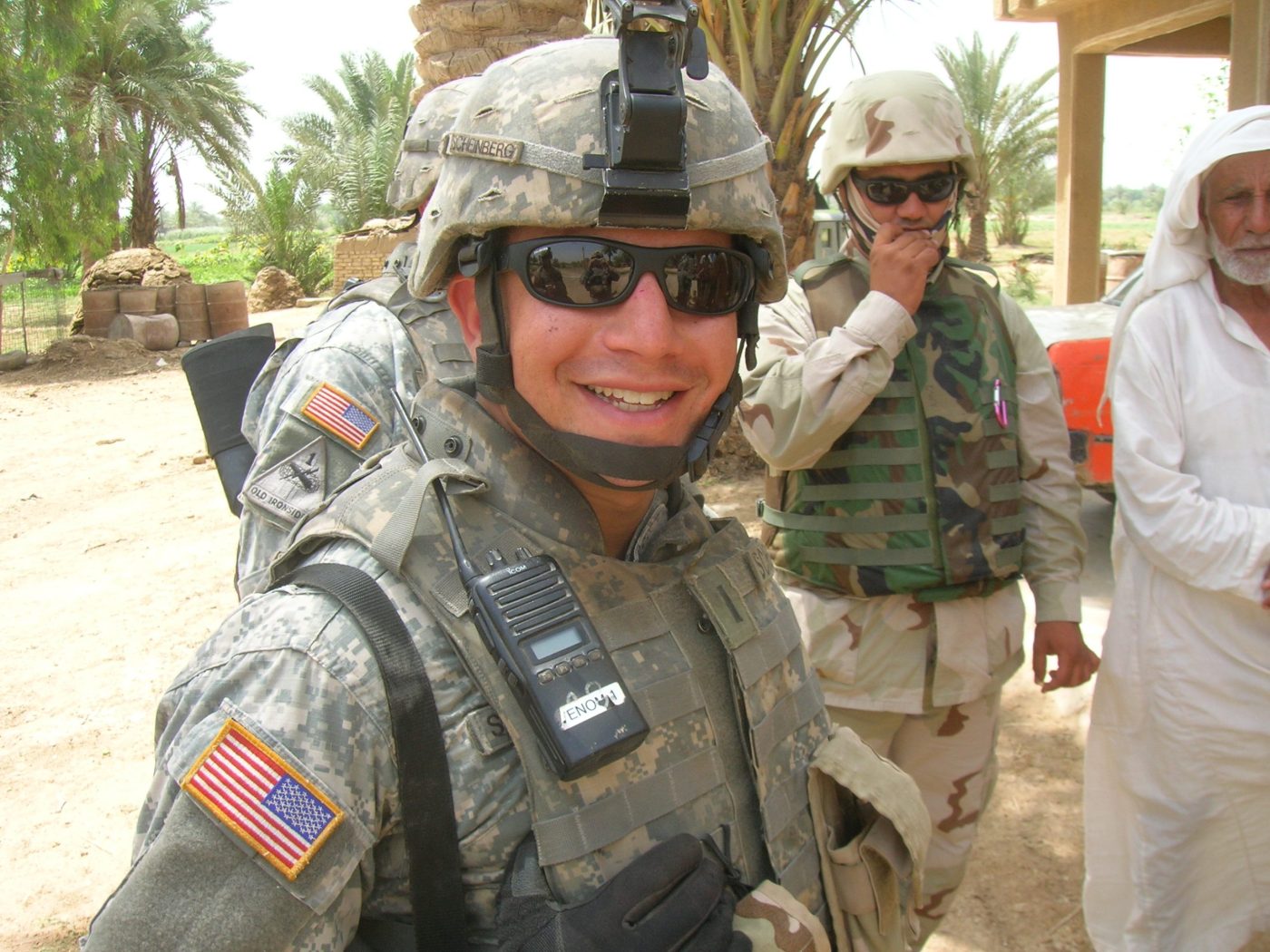Irvin Axelrod dedicated himself to helping amputees and others less fortunate. He founded and served as president of the Washington Amputee Association and was active in the Northern Virginia Amputee Support Group. He worked at the National Rehabilitation Hospital in Washington as an amputee patient coordinator. His philosophy was straightforward: “Help as many people as I can.”
Axelrod, who died at age 83 in 2012, was an amputee himself. While serving in the Army during the Korean War in 1951, he stepped on a landmine that exploded. More than 30 years later and after nearly two dozen surgeries, his right leg was amputated below the knee.

Wounded in a landmine explosion during the Korean War, Irvin Axelrod was honored with the Purple Heart and other medals.
Axelrod was in Korea for less than two months. A reserve soldier, he was activated by the Army in November 1950, shortly after U.S. and U.N. forces intervened in Korea to thwart advances by North Korean Communist troops. He landed in Korea on Christmas Eve 1950, stayed a few days in a southern port city, and moved 200 miles north to join the 25th Infantry Division near the South Korean capital, Seoul, on Jan. 6, 1951.
`It was demoralizing’
While heading north, Axelrod saw millions of people scurry south to escape advancing Chinese Communist forces that had entered the war. “Everybody was evacuating Korea,” Axelrod said in a 1993 interview. “It was snowing, and everybody’s going south, and I’m on a damn truck going north to fight the enemy. It was demoralizing.”
Army Pfc. Irvin Axelrod became part of “Operation Killer,” a counter-offensive initiated by Gen. Matthew Ridgeway to clear the Chinese out of South Korea. While delivering communications, Axelrod was 50 yards from a British command post when he stepped on a mine buried under a snow-covered rice paddy. The blast put him on his back.
Axelrod remembered his exchange at the time with one of his comrades, George “Birdie” Bertram: “I’m lying there, and I’m looking up at the grey sky, and I said, `Birdie, get down. They’ll shoot you, too.’ He said, `No, no, you stepped on a landmine.’ I said, `What the hell are you talking about?’ Then I looked down at my [right] leg, and it was beginning to hurt like hell. Between my knee and my right ankle, my leg made a right turn. It was pointed out away from my body, and the toe on the foot was lying flat on the ground.”
Veteran influenced by a great humanitarian
Axelrod received multiple medals for his service and bravery, including the Purple Heart. In all, he underwent 22 surgeries and spent nearly five years in Army hospitals and in the VA hospital in Brooklyn, N.Y. Finally, 32 years later, in 1983, he made a decision he wished he had made earlier in life. His right leg was amputated about six inches below the knee. Over the years, he experimented with a number of prostheses. His last one, a prosthesis made of carbon fiber and titanium, enabled him to walk without a limp.
In 1953 at the VA hospital in Brooklyn, Axelrod had the good fortune of meeting someone who would re-direct his focus in life: Helen Keller. Keller had overcome the adversity of being blind and deaf to become of the America’s leading humanitarians of the 20th century. Over the years, Axelrod told the story of how Keller touched his cast and spelled out through an interpreter that “she had a burden to carry in her own life, but never one as heavy as this young man’s.” He remembered her “concentrating on what she has, not what she lost.”
“That message always resonated with him,” said Axelrod’s daughter, Sara Lissabet. “He always wanted to help people lighten their own burdens.”
Counseling wounded servicemen
In his professional life, Axelrod pursued a civilian government career of more than three decades. He worked for the Defense Intelligence Agency, the CIA, the Department of Commerce and the International Trade Administration.
In addition to his work with the Washington Amputee Association and the Northern Virginia Amputee Support Group, Axelrod regularly visited Walter Reed Army Medical Center in Washington to counsel wounded servicemen returning from the post-9-11 conflicts in Iraq and Afghanistan. He worked with the Department of Homeland Security to develop a training video for airport personnel on people with disabilities. After undergoing triple bypass surgery at age 75, he volunteered to counsel heart attack victims.
He was also an active supporter of the Landmine Survivors Network and testified before Congress on a universal landmine ban.
For his selfless acts, Axelrod was named one of Washingtonian magazine’s “Washingtonians of the Year” in 2004. It was just recognition for a man who put others before himself.
Topics in this story
More Stories
VA recently developed a pilot program providing direct and specialized assistance for the 65 living Medal of Honor recipients nationwide.
This year, Veterans Day ceremonies recognized by VA will be held in 66 communities throughout 34 states and the District of Columbia to honor the nation's veterans.
A personal reflection on generational service from VA Deputy Assistant Secretary Aaron Scheinberg.







The 2 minute survey sent by the Home Health program didn’t give an opportunity to comment. The program becomes very repetitive. Some of the text and tone seems about grade school level. I found the blood pressure cuff awkward and ill sized for me. Marvin Diamond